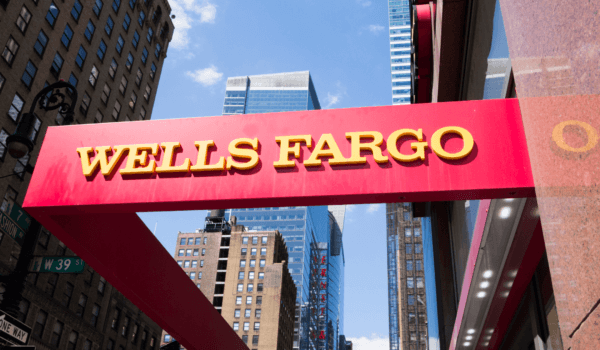
The COVID-19 pandemic has greatly affected businesses in more ways than one. While many have been able to obtain funding or loans through the Paycheck Protection Program or an Economic Injury Disaster Loan (EIDL), others have found coronavirus loan fraud issues. This is true for Wells Fargo, which recently fired over 100 employees for defrauding a coronavirus relief program through the U.S. Small Business Administration (SBA).
Wells Fargo and COVID-19 Fraud
Wells Fargo fired between 100 and 125 employees this month after it was discovered they had personally defrauded the SBA’s EIDL COVID-19 relief program. According to a memo, the employees identified in the fraud scheme made false representations in applying for relief funds through the EIDL program. This specific SBA program is meant to assist struggling businesses by covering up to six months of operational expenses that must be repaid after a certain amount of time. In addition to this, the EIDL also offers a $1,000 to $10,000 cash advance that does not need to be repaid – even in the event the loan is rejected.
Wells Fargo isn’t the only bank to see fraudulent activities and abuse of government programs in relation to the ongoing pandemic. In September, JP Morgan Chase found over 500 of its employees had wrongfully received financial assistance through COVID-19 relief programs.
How To Protect Your Businesses From COVID-19 Fraud
Coronavirus relief fraud has become a major concern for many small businesses in the Greater Houston area and beyond. In particular, the SBA first noticed rising fraud within the EIDL program back in July of this year. According to the Office of Inspector General (OIG), which oversees the SBA, the office received complaints regarding more than 5,000 instances of suspected fraud from financial institutions receiving EIDL deposits in the summer months. Just nine of the financial institutions that reported fraud saw a combined total of $187.3 million in suspected fraudulent transactions alone.
With this in mind – along with the recent instances of coronavirus relief fraud from JP Morgan Chase and Wells Fargo – business owners need to ensure their operations are protected from coronavirus loan fraud, including:
Understanding that the SBA Does Not Directly Contact Businesses
In the event a business receives or has received an unsolicited phone call about being pre-approved for an SBA loan, it’s fraudulent. Businesses must apply on their own in order to receive financial assistance through the PPP or EIDL programs. Business owners should ignore these calls and avoid sharing any business information with potential fraudsters, as it can easily damage the business.
Don’t Pay for Access to Funds or Access to a Faster Payment
If a business receives a call or an email from someone promising more COVID-19 relief funding if the business pays upfront, it is fraudulent. In other instances, scammers may request a fee for ‘expedited payments,’ which do not exist. This is because, under the CARES Act, there is no offer for paid expedited options or upfront payments.
Double Check Email Addresses
Business Email Compromise scams (BEC) have unfortunately become incredibly common in recent years. In most instances, an employee may receive an email from a CEO or higher-up asking for certain information or access to accounts. In many cases, the email used will look incredibly similar to the actual email the manager may use with small tweaks. With regard to the recent instances of COVID-19 relief fraud, these emails could be coming from someone saying they are from the SBA or another organization affiliated with coronavirus relief. In order to determine if a business has been targeted by a BEC, its important to:
- Always hover over links to see the web address before clicking.
- Never directly respond to emails from unknown senders.
- Be skeptical of URLs and emails with multiple misspelled words or ones that use the wrong domain in their name (for instance, using CDC.com, instead of CDC.gov).
Protecting Houston Businesses
Fraud attempts can happen to a business at any time. Whether it’s in the form of employees wrongfully receiving financial assistance or from outside fraudsters looking to capitalize on a struggling business during the ongoing pandemic – it’s important to stay vigilant and if necessary, seek the assistance of an experienced commercial litigation attorney. At Feldman & Feldman, we know just how much fraud can hurt a business. If you suspect your business has been a victim of fraud, contact us today for more information on how we can help.
